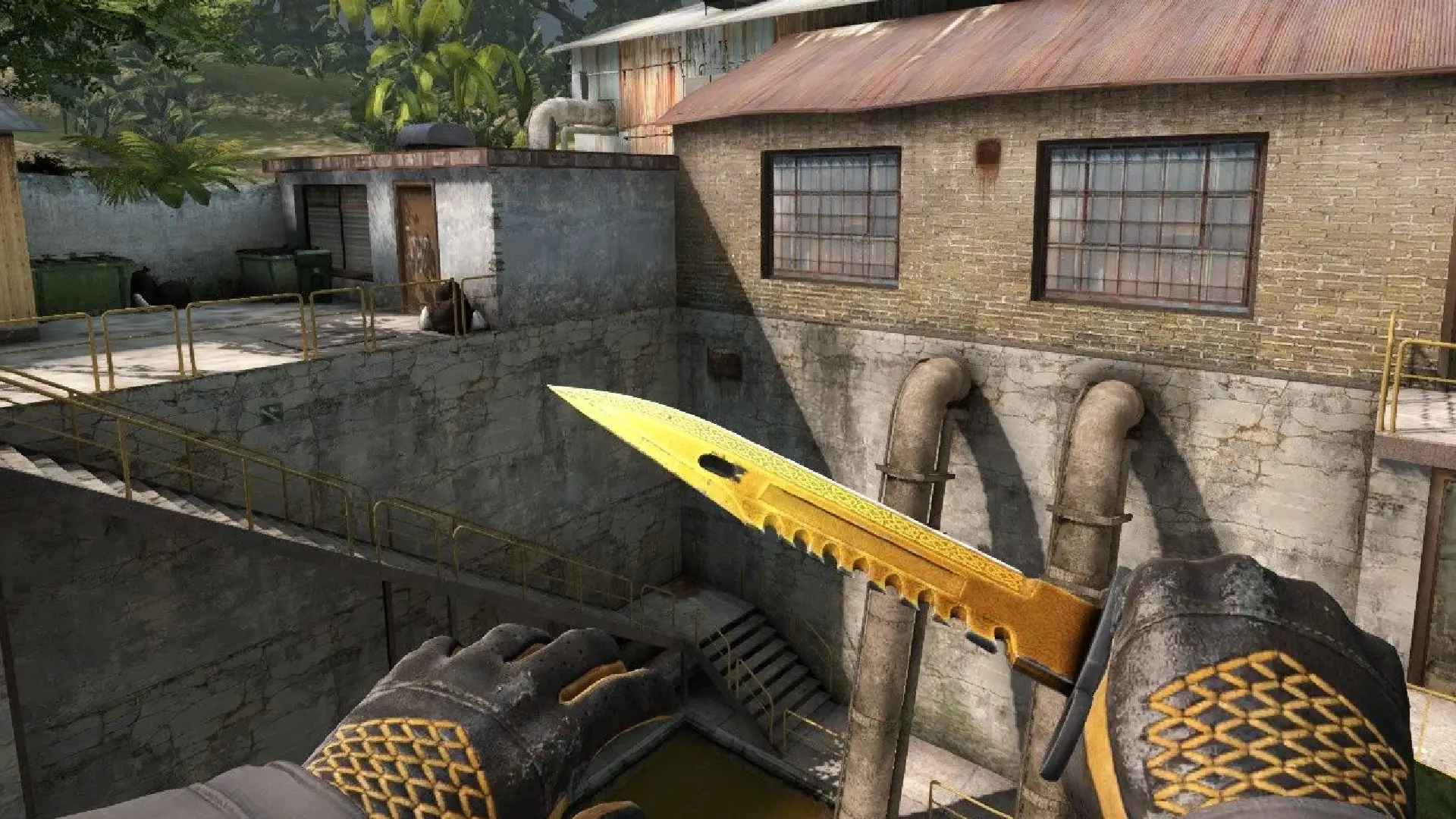
Steam Market is an online platform where players of Valve’s games can buy, sell, and trade in-game items using real-world money. In the context of Counter-Strike: Global Offensive (CS:GO), the market has become a bustling hub for players to obtain new cosmetic items to enhance their gaming experience. These transactions are secure and are conducted entirely within the Steam ecosystem, ensuring a level of safety and trust among users.
For newcomers, the process begins with setting up a Steam account and enabling Steam Guard for security. Once you’re set up, you can browse the marketplace for items listed by other players. Prices for items on the Steam Market are determined by supply and demand, with rarer items typically commanding higher prices.
When you purchase an item, it is immediately added to your CS:GO inventory, ready to be used in-game. Conversely, selling items involves listing them on the csmarket, setting a price, and waiting for another player to make the purchase. The funds from sales go into your Steam Wallet, which can be used for further purchases on Steam.
Understanding CS:GO In-Game Items
CS:GO offers a variety of in-game items that players can acquire, each with its own level of rarity and desirability. The most common items are skins, which are cosmetic changes to the appearance of weapons in the game. These skins do not affect gameplay but are sought after for their aesthetic appeal and status symbol. Some skins are exceedingly rare and can fetch significant sums on the Steam Market.
Keys are another item type, used to open loot boxes containing random skins. Stickers can be applied to weapons for personalization, while music kits change the in-game soundtrack. Each item type has a different level of demand in the market, influenced by factors like rarity, popularity, and availability.
Collectors and enthusiasts often trade these items on the Steam Market for profit or to obtain specific pieces for their collection. The market’s fluidity ensures that there is always a wide selection of items to browse, and for many players, the hunt for the perfect skin or sticker is a game in itself. Whether you are looking to sell off surplus items or invest in a new look for your favorite weapon, the Steam Market offers a comprehensive and user-friendly platform for all your CS:GO trading needs.
Setting Up Your Steam Account for Trading
To engage in trading on the Steam Market, you must first ensure your Steam account is properly set up and secured. Here are the essential steps to prepare your account for trading:
- Create a Steam Account: If you haven’t already, sign up for a Steam account at the official Steam website.
- Install Steam Guard: Activate Steam Guard, Valve’s security feature, to protect your account. This requires linking a phone number and/or email address to your account.
- Verify Your Email: Confirm your email address with Steam to enable full access to the platform’s features.
- Secure Your Account: Use a strong password and enable two-factor authentication through the Steam mobile app for added security.
- Wait for the Probation Period: New accounts must wait 15 days after Steam Guard activation before they can trade or use the Community Market.
- Add a Payment Method: Link a valid payment method to your account to add funds to your Steam Wallet or make purchases.
- Market Eligibility: Ensure you’ve made a purchase on Steam within the last year and have no recent chargebacks or payment disputes.
Remember, these steps are not only for your safety but also to comply with Steam’s policies to prevent fraud and unauthorized trading.
How to Buy Items on the Steam Market
Purchasing CS:GO items on the Steam Market is straightforward once your account is set up. Follow these steps to acquire new in-game items:
- Access the Steam Market: Navigate to the Community Market through the Steam client or website.
- Search for CS:GO Items: Use the search function to find specific skins, stickers, keys, or other items you’re interested in.
- Examine Listings: Look at the available listings for your desired item. Check the price history and condition of the items before making a decision.
- Add Funds: If you don’t have enough in your Steam Wallet, add funds using your linked payment method. Remember, the currency is localized based on your Steam account settings.
- Understand Transaction Fees: Be aware that Steam imposes a transaction fee, which is generally 5% of the sale price, plus an additional fee for the game developer (in this case, Valve).
- Make a Purchase: Once you’ve selected an item and have sufficient funds, click “Buy” to make the purchase. The item will be added to your CS:GO inventory instantly.
Keep in mind that prices fluctuate based on supply and demand, so it may be wise to monitor the market for the best deals. Additionally, some items may be subject to trade holds if you haven’t had a mobile authenticator for at least seven days, which delays the delivery of the item to your inventory. Always review the terms of each transaction to ensure a smooth and successful purchase.
Selling Your CS:GO Items
To capitalize on your CS:GO inventory, selling items on the Steam Market is a straightforward process. Here’s how you can turn your virtual assets into Steam Wallet funds:
- Inventory Assessment: Begin by evaluating your CS:GO inventory to determine which items you wish to sell.
- Market Research: Investigate the current market value of your items. Look at recent sale prices to gauge how much buyers are willing to pay.
- Listing Items for Sale: In the Steam interface, navigate to the ‘Community’ tab, select ‘Market’, and then choose the item you want to sell from your inventory.
- Set Your Price: Decide on a competitive price. You can set a price based on current market trends or undercut the lowest current listing to attract quick buyers.
- Transaction Fees: Remember that Steam will take a cut from your sale, typically around 15% of the sale price, which includes both the Steam transaction fee and a game-specific fee.
- Item Visibility: Once listed, your item will be visible to all potential buyers on the market. You can adjust the price at any time if the item hasn’t sold.
- Sale Completion: When someone purchases your item, the funds are automatically added to your Steam Wallet after a brief hold period, if applicable.
By staying informed about market trends and pricing your items competitively, you can make profitable sales on the Steam Market.
The Economics of the Steam Market
The Steam Market operates on the basic principles of economics: supply and demand. Various factors influence the prices of CS:GO items in the market:
- Rarity: Items are categorized into various rarity levels, from common to extremely rare. Rarer items are usually more valuable.
- Demand: Popular items that are in high demand tend to sell at higher prices. Player preferences and trends can shift demand.
- In-Game Events: Special events or updates in CS:GO can increase the value of certain items due to new or limited availability.
- Condition: The condition of a skin, such as ‘Factory New’ or ‘Battle-Scarred’, significantly affects its price.
- Exclusivity: Some items are only available for a limited time or as part of exclusive promotions, making them more sought after.
- Market Saturation: An oversupply of a particular item can drive prices down, as sellers compete to attract buyers.
Understanding these economic factors can help you make informed decisions when buying or selling on the Steam Market. Whether you’re a casual player or a dedicated trader, recognizing the nuances of the market’s economy can enhance your trading experience and potentially lead to profitable transactions.
Steam Wallet and Market Restrictions
The Steam Wallet is a digital wallet tied to your Steam account that holds funds for use within the Steam ecosystem. Adding funds to your Steam Wallet is straightforward: you can use credit cards, PayPal, or Steam Wallet cards to deposit money. These funds can then be used to purchase games, downloadable content, and in-game items on the Steam Market, including CS:GO skins, stickers, and keys.
However, it’s essential to be aware of certain market restrictions and limitations:
- Minimum Transaction Amount: There is a minimum amount for Steam Wallet transactions, which varies depending on your region.
- Non-Transferable Funds: Steam Wallet funds cannot be transferred to other accounts or withdrawn; they are strictly for use on Steam.
- Market Cooldowns: After adding funds to your Wallet or after making a purchase on the Steam Store, you might be subject to a market cooldown, during which you cannot use the market. This is a security measure.
- Purchase Limitations: New accounts or accounts that haven’t made a purchase in the past year face limitations. They must spend at least $5 to gain full access to market features.
- Listing Limits: You can only list a certain number of items for sale at once, and there’s a maximum amount you can earn from sales each year before needing to provide additional personal information.
Understanding these restrictions is crucial to avoid surprises and ensure a smooth experience when using the Steam Market for CS:GO transactions.
Safety and Security on the Steam Market
Trading on the Steam Market is generally secure, but it is still essential to exercise caution to protect your account and assets. Here are some tips to trade safely and avoid scams:
- Secure Your Account: Always use a strong password and enable Steam Guard two-factor authentication. Never share your login credentials with anyone.
- Beware of Phishing: Be vigilant about phishing attempts. Always check the URL of the Steam website before logging in, and do not click on suspicious links from unknown sources.
- Trade Within the Steam Platform: Conduct all trades directly through the Steam interface. Avoid external websites or individuals offering to trade or sell items outside of Steam.
- Verify Item Authenticity: Double-check the items you’re trading for to ensure they are genuine and not renamed or misrepresented.
- Check User Reputation: Look at the trading history and feedback of the user you’re dealing with. A long history of positive trades can be a good sign.
- Report Scams: If you encounter a scam or an attempt to defraud you, report the user to Steam Support immediately.
- Keep Personal Information Private: Never disclose personal information, such as your address or payment details, to other users on the market.
By following these safety measures, you can significantly reduce the risk of fraud and enjoy a secure trading experience on the Steam Market.
The Role of the Community Market in CS:GO’s Economy
The Community Market plays a pivotal role in the economy of Counter-Strike: Global Offensive (CS:GO), influencing not only the game’s virtual ecosystem but also the real-world financial involvement of its players. Here’s how the market impacts CS:GO’s economy:
- Player Engagement: The ability to trade and sell in-game items keeps players engaged, as they can personalize their experience and strive for rare items.
- Monetization: The market monetizes player participation, as rare items can be sold for substantial amounts, incentivizing players to invest time and money.
- Price Dynamics: The fluctuating prices of items reflect their demand and rarity, creating a dynamic economy where players act as both consumers and vendors.
- Economic Incentive: For some, the market serves as a platform for entrepreneurship, buying low and selling high to generate profit.
- Market Liquidity: The constant flow of items being bought and sold provides liquidity, making the market a lively component of the game’s ecosystem.
The Community Market thus serves as a microcosm of a real-world economy, with its own trends, booms, and busts, directly affecting the financial and engagement aspects of the CS:GO community.
Trading Etiquette and Best Practices
Trading within the Steam Market should be approached with respect and consideration for fair play. Here are some guidelines for trading etiquette and best practices:
- Fair Pricing: List items at reasonable prices based on their market value. Overpricing can lead to stagnation, while underpricing can undercut the market.
- Honest Negotiations: When negotiating trades, be honest about the item’s condition and value. Misrepresentation can lead to distrust and damage your reputation.
- Clear Communication: Maintain clear and polite communication with other traders. This fosters a positive trading environment and can lead to repeat transactions.
- Patience is Key: Be patient with offers and negotiations. Impatience can lead to poor decisions or missed opportunities.
- Respect Privacy: Do not share other traders’ personal information or transaction details without consent.
By adhering to these unwritten rules, you contribute to a healthy and trustworthy trading environment, ensuring that the Steam Market remains a beneficial feature for the entire CS:GO community.
Advanced Trading Strategies
For those who have mastered the basics of the Steam Market, advanced trading strategies can further enhance your CS:GO trading experience. Experienced traders often employ sophisticated tactics such as investing in potential future rarities or engaging in ‘trade-ups’, where lower value skins are exchanged for a chance at obtaining a higher value one.
Investing in items involves purchasing skins, stickers, or other in-game items that are expected to increase in value over time. This could be due to their rarity, potential discontinuation, or popularity trends. Astute traders keep a keen eye on the market to predict which items are likely to become more valuable in the future.
Trade-ups, meanwhile, are a gamble that can pay off handsomely. By trading up ten items of a specific grade, players have a chance to receive one item of the next highest grade. This can be a risky strategy, as the outcome is determined by chance, but it offers the possibility of turning less valuable items into a single, more valuable one.
Both investing and trade-ups require a deep understanding of the market and the factors that influence item value. These strategies are not for the faint-hearted but can be rewarding for those willing to take the risk.
Impact of Updates and Patches on Market Prices
The Steam Market for CS:GO is a dynamic environment, heavily influenced by game updates, new content releases, and patches. When Valve releases an update or a new collection of skins, it can significantly affect item prices and trading strategies.
For example, a new weapon skin release can create a surge in demand, leading to an initial spike in prices. Conversely, if a popular skin is re-released or becomes more accessible, its market value may drop as supply increases. Seasonal events or operations can also introduce new items to the market, temporarily shifting the focus of traders and buyers.
Patches that affect gameplay can also have an indirect impact on the market. Changes to weapon balance can alter the popularity of certain skins, as players gravitate towards skins for newly favored weapons. Understanding these trends and adapting your trading strategy accordingly is crucial for success in the Steam Market.
Staying informed about CS:GO updates and community reactions is key for traders looking to capitalize on market fluctuations. By anticipating how updates will affect the market, savvy traders can buy low and sell high, maximizing their profits. It’s a delicate dance of timing and prediction, but those who can read the signs stand to gain the most.
The Steam Market for CS:GO is a dynamic and engaging platform, providing players with a virtual economy to trade skins, stickers, and other in-game items. As we have explored, successful trading requires an understanding of market principles, such as supply and demand, and an awareness of how updates and patches can affect item prices. To maximize your trading experience:
- Stay Informed: Keep up-to-date with market trends and game updates that could influence item values.
- Secure Transactions: Prioritize account security with Steam Guard and be cautious of phishing attempts.
- Research and Patience: Conduct thorough research on item prices and be patient in your buying and selling endeavors.
- Trading Etiquette: Maintain fair pricing and honest negotiations to establish a good reputation in the community.
- Advanced Tactics: Consider advanced strategies like investing and trade-ups once you have a solid grasp of the basics.
The future of the Steam Market looks promising, with potential advancements in technology and an ever-growing esports scene that could further stimulate the CS:GO economy. Whether you are looking to enhance your gaming experience with new skins or aiming to profit from savvy trading, the Steam Market provides the tools and opportunities to achieve your goals.
Remember, success on the Steam Market is not just about making a quick profit; it’s about being a well-informed and responsible member of the CS:GO community. By applying the insights from this guide, you can navigate the market with confidence and make the most of your CS:GO trading experience.







